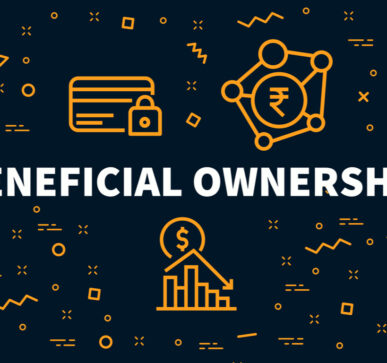The Corporate Transparency Act (CTA) is within the AML Act of 2020. It establishes Beneficial Ownership Information Reporting Requirements to facilitate important national security, intelligence, and law enforcement activities; and confirm beneficial ownership information provided to financial institutions to facilitate the compliance of the financial institutions with anti-money laundering, countering the financing of terrorism, and customer due diligence requirements under applicable law.
With respect to an entity, an individual who, directly or indirectly, through any contract, arrangement, understanding, relationship, or otherwise exercises substantial control over the entity; or owns or controls not less than 25 percent of the ownership interests of the entity is a Beneficial Owner.
Why did the U.S. Congress establish the CTA?
The U.S. Congress determined that:
- More than 2,000,000 corporations and limited liability companies are being formed under the laws of the States each year.
- Most or all States do not require information about the beneficial owners of the corporations, limited liability companies, or other similar entities formed under the laws of the State.
- Malign actors seek to conceal their ownership of corporations, limited liability companies, or other similar entities in the United States to facilitate illicit activity, including money laundering, the financing of terrorism, proliferation financing, serious tax fraud, human and drug trafficking, counterfeiting, piracy, securities fraud, financial fraud, and acts of foreign corruption, harming the national security interests of the United States and allies of the United States
- Money launderers and others involved in commercial activity intentionally conduct transactions through corporate structures in order to evade detection
- Federal legislation providing for the collection of beneficial ownership information for corporations, limited liability companies, or other similar entities formed under the laws of the States is needed to set a clear, Federal standard for incorporation practices; protect vital Unites States national security interests; protect interstate and foreign commerce; better enable critical national security, intelligence, and law enforcement efforts to counter money laundering, the financing of terrorism, and other illicit activity; and bring the United States into compliance with international anti-money laundering and countering the financing of terrorism standards.
Under the CTA, all U.S. entities are required to file “beneficial ownership” information with FinCEN
The CTA requires that companies in the U.S. provide FinCEN with a report containing the name, date of birth, current address, and unique (non-expired) identification number of the company’s “beneficial owner(s)”.
Who is the Applicant?
The ‘‘applicant” is any individual who files an application to form a corporation, limited liability company, or other similar entity under the laws of a State or Indian Tribe; or registers or files an application to register a corporation, limited liability company, or other similar entity formed under the laws of a foreign country to do business in the United States by filing a document with the secretary of state or similar office under the laws of a State or Indian Tribe.
What is a Reporting Company?
The “reporting company” means a corporation, limited liability company, or other similar entity that is created by the filing of a document with a secretary of state or a similar office under the law of a State or Indian Tribe; or formed under the law of a foreign country and registered to do business in the United States by the filing of a document with a secretary of state or a similar office under the laws of a State or Indian Tribe.
What will FinCEN do with the information?
FinCEN can only store the Beneficial Information obtained in a private database that will not not accessible to the general public. Under the CTA, the beneficial information (cannot be searched for under the Freedom of information Act) may only be released to:
- A federal, state, local, or tribal law enforcement agency conducting an active investigation
- A federal agency making the request on behalf of a foreign law enforcement agency under mutual legal assistance protocols; and
- A financial institution conducting due diligence under the Banking Secrecy Act with customer consent.
Financial Institutions ought to start thinking ahead about Beneficial Ownership upcoming changes
Changes to the Financial Institutions Customer Due Diligence process as it relates to obtaining and verifying beneficial ownership information of entity customers are upcoming.
The maintenance and development of robust compliance programs under a Financial Institution’s Corporate Governance responsibility is key to avoiding penalties, investigations, and enforcement actions.
Who is your Corporate Governance expert? ©





